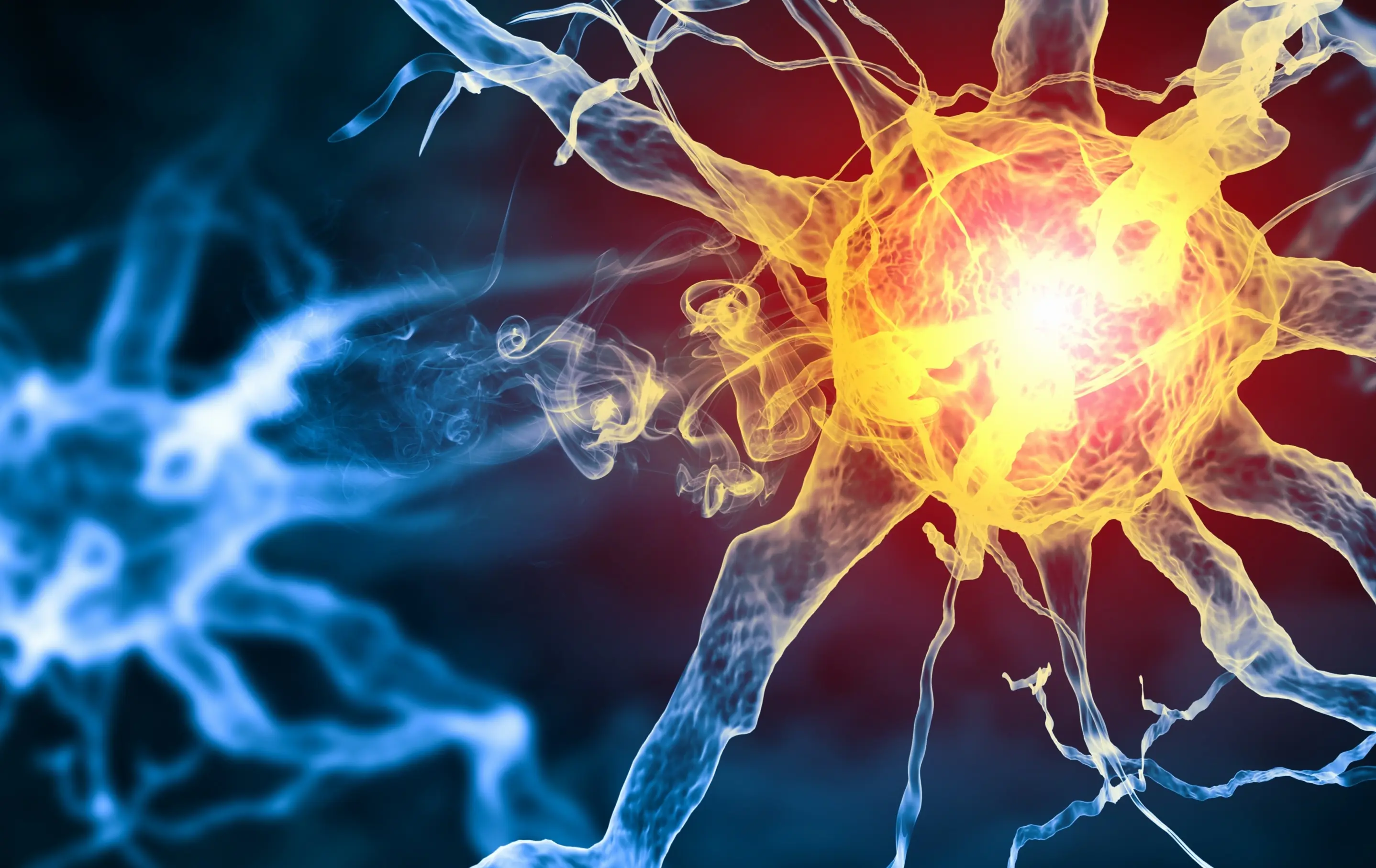Machine Perception and Cognition Group

«KI ist DIE Schlüsseltechnologie des digitalen Wandels in allen Branchen und Sektoren und sie hat starke Auswirkungen auf unsere Gesellschaften. Darum leistet unsere Forschung wichtige Beiträge zu robusten und vertrauenswürdigen KI-Methoden, und wir vermitteln mit Begeisterung deren sichere Umsetzung und Anwendung.»
Expertise

- Mustererkennung mit Deep Learning
- Maschinelle Wahrnehmung, Computer Vision und Sprechererkennung
- Entwicklung neuronaler Systeme
Die Machine Perception and Cognition-Gruppe forscht über Mustererkennung und arbeitet an einer Vielzahl von Aufgaben mit Bild-, Ton- oder allgemein Signaldaten. Wir befassen uns mit der Methodik der tiefen neuronalen Netze (Deep Neural Networks) und des Reinforcement Learning, inspiriert durch biologisches Lernen. Jede unserer Aufgaben hat ihr eigenes Lernziel (z. B. Erkennung, Klassifizierung, Clustering, Segmentierung, Novelty Detection, Steuerung) und ihren eigenen Anwendungsfall (z. B. vorausschauende Instandhaltung (Predictive Maintenance), Sprechererkennung für Multimedia-Indizierung, Dokumentanalyse, optische Notenerkennung, Computer Vision für industrielle Qualitätskontrolle, automatisiertes maschinelles Lernen, Deep Reinforcement Learning für automatisierte Spiele oder Gebäudeleittechnik). Diese werfen ihrerseits ein Licht auf verschiedene Aspekte des Lernprozesses. Wir nutzen diese Erfahrungen, um allgemeinere KI-Systeme zu kreieren, die auf neuronalen Architekturen basieren.
Angebote
- Einblick: Keynotes, Trainings
- KI-Beratung: Workshops, Expertenunterstützung, Beratung, Technikfolgenabschätzung
- Forschung und Entwicklung: kleine bis grosse Gemeinschaftsprojekte, Drittmittelforschung, studentische Projekte, praxiserprobte Prototypen
Team
Projekte
-
SCRAI – A Think-and-Do-Tank for Responsible Development and Societal Alignment of Artificial Intelligence Systems
SCRAI bringt verantwortungsvolle KI in die Praxis, indem es die Kluft zwischen gesellschaftlichen Werten und der Entwicklung von KI-Technologie und -Lösungen überbrückt. Der SCRAI Think-and-Do Tank wird Organisationen dabei helfen, das Potenzial der KI zu nutzen und gleichzeitig die rechtlichen…
laufend, 04/2025 - 12/2029
-
dAIrector – Automatisierte Mehrkamera-Liveproduktion für Veranstaltungen (dAIrector)
Der dAIrector automatisiert Multicam-Liveproduktionen von Konzerten, Theater, Comedy und Musicals durch kreative KI-Regie, die der Dramaturgie auf der Bühne folgt. Er wird via YourStage.live kleinen Bühnen, Events, Festivals und Künstler einen Zugang zu einem weltweiten Publikum bieten.
laufend, 01/2025 - 12/2027
-
Studie zur semiautomatischen Plakaterschliessung an der Schweizerischen Nationalbibliothek (SemPla)
Täglich bekommt die Schweizerische Nationalbibliothek neue physische Plakate und Poster zur Aufnahme in ihren Katalog. Wie kann der Prozess zur Plakaterschliessung durch aktuelle KI Systeme verbessert werden?
abgeschlossen, 05/2024 - 11/2024
-
Deep Dive ML on Simulated Enzyme-Electrolysis Performance
The goal of this pilot study is to research requirements needed to develop a computational model that simulates the fluidic and electro-biochemical dynamics in the power-to-liquid process in order to optimise the performance, efficiency and longevity of enzymes.
abgeschlossen, 11/2023 - 03/2024
-
AI for REAL-world NETwork operation (AI4REALNET)
The scope of AI4REALNET covers the perspective of AI-based solutions addressing critical systems (electricity, railway, and air traffic management) modelled by networks that can be simulated, and are traditionally operated by humans, and where AI systems complement and augment human abilities. It…
laufend, 10/2023 - 03/2027
-
Stability of self-organizing net fragments as inductive bias for next-generation deep learning
We recently released "A Theory of Natural Intelligence", proposing a possible key to the emergence of intelligence in biological learners. Goal of this fellowship is to develop a technical implementation of the concept of self-organizing netfragments within contemporary deep artificial neural nets.
abgeschlossen, 09/2023 - 08/2025
-
Machine Learning für Body Composition Analysis (ML-BCA)
Das Centre for Artificial Intelligence (CAI) der ZHAW hat gemeinsam mit dem Kantonsspital Aarau im Rahmen von Vorstudien die Grundlage für Machine Learning-unterstützte Body Composition Analysis auf Bildbeständen des KSA gelegt und hierbei vielversprechende Ergebnisse erzielt. Ziel dieses Projekts…
abgeschlossen, 04/2023 - 03/2025
-
3D-Master for a Digitized Manufacturing Platform
Wir erweitern die Real Time Manufacturing Services von Bossard durch die automatische Erstellung von Angeboten für Spezialteile. Das Herzstück ist ein von KI erstellter 3D-Master, der alle verfügbaren Teilinformationen vereint und die Preisfindung und Machbarkeitsbewertung für viele…
abgeschlossen, 12/2022 - 05/2025
-
certAInty – A Certification Scheme for AI systems (certAInty)
Certification of AI Systems by an accredited body increases trust, accelerates adoption and enables their use for safety-critical applications. We develop a Certification Scheme comprising specific requirements, criteria, measures, and technical methods for assessing Machine Learning enabled…
abgeschlossen, 11/2022 - 12/2024
-
DISTRAL: Industrial Process Monitoring for Injection Molding with Distributed Transfer Learning
We develop a distributed machine learning system to sort out defect plastic parts during production. Main challenge is the transferability of learnt process know-how from case to case; the solution builds on domain adaptation, continual data-centric deep learning and federated edge computing.
abgeschlossen, 10/2022 - 03/2025
-
AI powered CBCT for improved Combination Cancer Therapy (AC3T)
The project enables a novel, combined, adaptive cancer therapy combining tumor treating field and radiation therapy due to significantly improved static (3D) and time-resolved (4D) low dose Cone Beam Computer Tomography images based on artificial intelligence image reconstruction algorithms.
abgeschlossen, 05/2022 - 02/2025
-
AUTODIDACT – Automated Video Data Annotation to Empower the ICU Cockpit Platform for Clinical Decision Support
Monitoring diverse sensor signals of patients in intensive care can be key to detect potentially fatal emergencies. But in order to perform the monitoring automatically, the monitoring system has to know what is currently happening to the patient: if the patient is for example currently being moved…
abgeschlossen, 02/2022 - 12/2022
-
Good practices for responsible development of AI-based applications in healthcare
This project will identify proven methods, practices and standards that support responsible research and development of AI systems for health. They will be tested in use cases from medical imaging and neurotechnology, publicly released and published as a guideline of recommended best practices.
abgeschlossen, 09/2021 - 08/2023
-
Pilot study machine learning for injection molding processes

Forschende des CAI und InES untersuchen im Rahmen eines technischen Deep Dive gemeinsam die Chancen, Prozesswissen über Spritzgussverfahren in Neuronalen Netzen zu bündeln und auf neue Anwendungsszenarios zu übertragen.Die Gruppen von Prof. Stadelmann (Computer Vision, Perception & Cognition, ZHAW…
abgeschlossen, 09/2021 - 03/2022
-
Accessible Scientific PDFs for All
PDF is the most popular document format to provide and distribute information on the internet. It was developed by Adobe 1996 but has been an open format since 2008. It was estimated in 2015 that more than 2.5 trillion PDF documents exist on the internet, covering all aspects of life and research,…
abgeschlossen, 04/2021 - 05/2025
-
Synthetic data generation of CoVID-19 CT/X-rays images for enabling fast triage of healthy vs. unhealthy patients
The automatic analysis of X-ray/CT images through artificial intelligence models can be useful to automate the clinical scanning procedure. Nonetheless, the limited access to real COVID patient data leads to the need of synthesizing image samples. The goal of this project is to use existing CT/X-ray…
abgeschlossen, 05/2020 - 07/2020
-
Standardized Data and Modeling for AI-based CoVID-19 Diagnosis Support on CT Scans (SDMCT)
Hospitals and research institutes are highly investigating applications of AI in medical imaging. However, developed models and datasets are barely mergeable, and the research results are not reproducible on different datasets due to different CT scanners used. Radiologists told us that “unifying…
abgeschlossen, 05/2020 - 10/2020
-
DIR3CT: Deep Image Reconstruction through X-Ray Projection-based 3D Learning of Computed Tomography Volumes
Project DIR3CT aims at improving the image quality of CBCT images by deep learning (DL) the 3D reconstruction from X-ray images end-to-end. This enables a novel CBCT product to be used during radiation therapy and will allow the use of these images for adaptive treatment.
abgeschlossen, 02/2020 - 05/2022
-
TAILOR – Foundations of Trustworthy AI - Integrating Reasoning, Learning and Optimization
The main ambition of TAILOR is to build the capacity of providing the scientific foundations for Trustworthy AI in Europe by developing a network of research excellence centers with a technical focus on combining research excellence in the areas of learning, optimisation and reasoning . The current…
abgeschlossen, 01/2020 - 12/2021
-
RealScore – Scanning of Real-World Sheet Music for a Digital Music Stand
ScorePad’s sheet music scanning service works for high quality input; to scale up business, it should work as well for smartphone pictures, used sheets etc. Project RealScore enhances the successful predecessor project by making deep learning adapt to unseen data through unsupervised learning.
abgeschlossen, 09/2019 - 05/2022
Publikationen
-
Ali, Waqar; Vascon, Sebastiano; Stadelmann, Thilo; Pelillo, Marcello,
2026.
Multi-view graph pooling via dominant sets for graph classification.
Pattern Recognition.
172, Part D(112786).
Verfügbar unter: https://doi.org/10.1016/j.patcog.2025.112786
-
Tuggener, Lukas; Stadelmann, Thilo; Schmidhuber, Jürgen,
2025.
Efficient rotation invariance in deep neural networks through artificial mental rotation.
Frontiers in Computer Science.
7(1644044).
Verfügbar unter: https://doi.org/10.3389/fcomp.2025.1644044
-
Mussi, Marco; Metelli, Alberto Maria; Restelli, Marcello; Losapio, Gianvito; Bessa, Ricardo J.; Boos, Daniel; Borst, Clark; Leto, Giulia; Castagna, Alberto; Chavarriaga, Ricardo; Dias, Duarte; Egli, Adrian; Eisenegger, Andrina; El Manyari, Yassine; Fuxjäger, Anton; Geraldes, Joaquim; Hamouche, Samira; Hassouna, Mohamed; Lemetayer, Bruno; Leyli-Abadi, Milad; Liessner, Roman; Lundberg, Jonas; Marot, Antoine; Meddeb, Maroua; Schiaffonati, Voila; Schneider, Manuel; Stadelmann, Thilo; Usher, Julia; Van Hoof, Herke; Viebahn, Jan; Waefler, Toni; Zanotti, Giacomo,
2025.
Human-AI interaction in safety-critical network infrastructures.
iScience.
28(9), S. 113400.
Verfügbar unter: https://doi.org/10.1016/j.isci.2025.113400
-
2025.
Evidence-based AI risk assessment for public policy.
Public Money & Management.
Verfügbar unter: https://doi.org/10.1080/09540962.2025.2541304
-
Meyer, Benjamin; Sager, Pascal; Abdulkadir, Ahmed; Grewe, Benjamin F.; Schuetz, Philipp; Stadelmann, Thilo; Burn, Felice,
2025.
In:
2025 IEEE Swiss Conference on Data Science (SDS).
12th IEEE Swiss Conference on Data Science (SDS), Zurich, Switzerland, 26-27 June 2025.
IEEE.
S. 1-7.
Verfügbar unter: https://doi.org/10.1109/SDS66131.2025.00008
Sonstige Veröffentlichungen
| Wann | Art | Titel |
|---|---|---|
| 2023 | Extended Abstract | Thilo Stadelmann. KI als Chance für die angewandten Wissenschaften im Wettbewerb der Hochschulen. Workshop (“Atelier”) at the Bürgenstock-Konferenz der Schweizer Fachhochschulen und Pädagogischen Hochschulen 2023, Luzern, Schweiz, 20. Januar 2023 |
| 2022 | Extended Abstract | Christoph von der Malsburg, Benjamin F. Grewe, and Thilo Stadelmann. Making Sense of the Natural Environment. Proceedings of the KogWis 2022 - Understanding Minds Biannual Conference of the German Cognitive Science Society, Freiburg, Germany, September 5-7, 2022. |
| 2022 | Open Research Data | Felix M. Schmitt-Koopmann, Elaine M. Huang, Hans-Peter Hutter, Thilo Stadelmann, und Alireza Darvishy. FormulaNet: Ein Benchmark-Datensatz für die Erkennung mathematischer Formeln. Eine ungelöste Teilaufgabe der Dokumentenanalyse ist die Erkennung mathematischer Formeln (MFD). Forschungen von uns und anderen haben gezeigt, dass bestehende MFD-Datensätze mit Inline- und Display-Formel-Etiketten klein sind und eine unzureichende Etikettierungsqualität aufweisen. Es besteht daher ein dringender Bedarf an Datensätzen mit besserer Beschriftungsqualität für die zukünftige Forschung im Bereich MFD, da diese einen großen Einfluss auf die Leistung der darauf trainierten Modelle haben. Wir stellen eine fortschrittliche Etikettierungspipeline und einen neuen Datensatz namens FormulaNet vor. Mit über 45.000 Seiten ist FormulaNet unserer Meinung nach der größte MFD-Datensatz mit Inline-Formelbeschriftungen. Unser Datensatz soll bei der Bewältigung der MFD-Aufgabe helfen und kann die Entwicklung neuer Anwendungen ermöglichen, wie z. B. die Zugänglichkeit mathematischer Formeln in PDFs für sehbehinderte Benutzer von Bildschirmlesegeräten. |
| 2020 | Open Research Data | Lukas Tuggener, Yvan Putra Satyawan, Alexander Pacha, Jürgen Schmidhuber, and Thilo Stadelmann, DeepScoresV2. The DeepScoresV2 Dataset for Music Object Detection contains digitally rendered images of written sheet music, together with the corresponding ground truth to fit various types of machine learning models. A total of 151 Million different instances of music symbols, belonging to 135 different classes are annotated. The total Dataset contains 255,385 Images. For most researches, the dense version, containing 1714 of the most diverse and interesting images, is a good starting point. |







